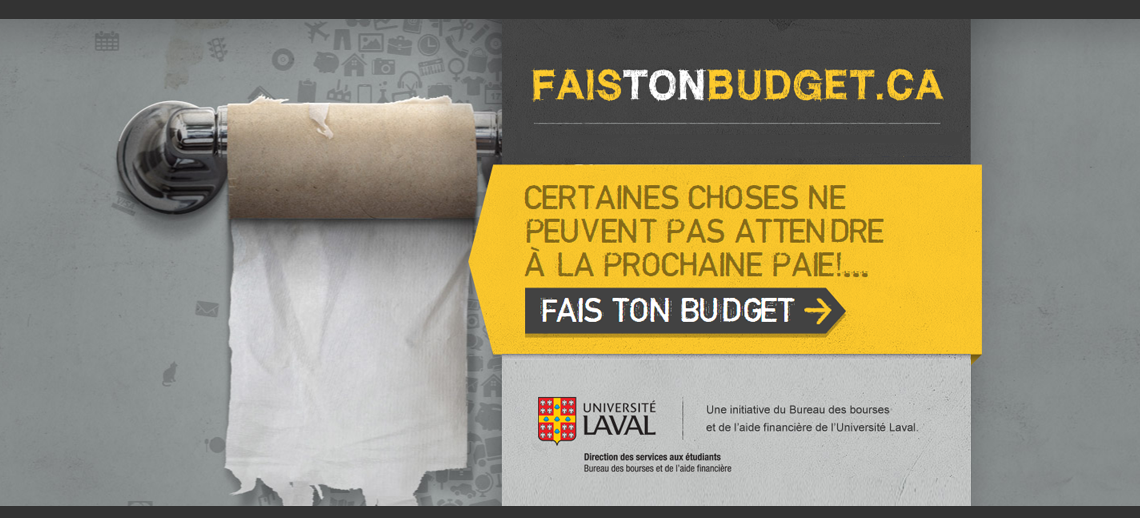Master’s program funding

- Admission Scholarships
- Scholarships for students
- Research scholarships
- Other sources of funding
- Sample expenses
Admission Scholarships

Supplemental tuition fee exemption scholarships
Offered to certain international students registered at Université Laval, these scholarships allow them to pay the same tuition fees as Quebec students.
Learn more
Citizens of the World scholarships
Excellence scholarships
In support of academic excellence.
Commitment scholarships
In support of engaged student leaders
$20,000
Learn more
Scholarships for students
available each year
per year
FGPS Student Success Scholarships
The FGPS Success Scholarships support students at every stage of their graduate studies.
Research scholarships
per year
Merit Scholarship
The Government of Québec awards merit scholarships to international students for master’s studies in research.
for research
Funding from your research supervisor
In many fields, research supervisors provide funding to students who work on their research projects. To find out how to apply, contact the program director at your faculty.
Other sources of funding
for international students
assistant
Available to undergraduate and graduate students
Jobs helping teaching staff or research teams with course- or research-related tasks.
Learn more (in French only)
Sample annual expenses – Person from abroad
Yannick’s expenses for a year of his master’s program at Université Laval
Yannick
Haitian
Master’s degree with research, Faculty of Business Administration
| Annual expenses | |||||
| 2024–2025* tuition fees for 1 academic year without a supplemental tuition fee exemption scholarship**
(24 credits)
*Tuition fees are indexed annually. They vary based on the student’s legal and resident status and program of study. Find out more. |
$21,433 | ||||
| Health and hospital insurance | $1,068 | ||||
| Housing
ULaval residences or shared off-campus housing
Important: Make sure to reserve your place before your arrival. |
$4,920 to $7,900 | ||||
| Groceries | $6,100 | ||||
| Public transit for Québec City and Lévis for the fall and winter semesters | Pass included in tuition fees | ||||
| Health care (medication and personal care) | $1,300 | ||||
| Academic and personal expenses (sports, leisure, clothes, books, immigration document renewal, etc.) | $3,700 | ||||
| Total annual expenses | $38,521 to $41,501 | ||||
| One-time expenses | |||||
| Application fee | $100 | ||||
| Québec Acceptance Certificate (CAQ) | $132 | ||||
| Study permit | $150 | ||||
| Travel upon arrival and temporary accommodation (if required), etc. | $500 | ||||
| Used furniture and accessories for off-campus housing | $800 | ||||
| Winter clothing and accessories | $500 to $800 | ||||
| Computer | $800 | ||||
| Total one-time expenses – First year of study | $882 to $3,282 | ||||
Last updated on January 6th, 2025.
Amounts are in Canadian dollars. This budget reflects a modest lifestyle and is only meant to serve as a guide. It may vary depending on the economic context and the student’s situation.
**Several tuition fee exemption scholarships exist especially French and French-speaking Belgian students, to reduce the additional foreign fees required by the Ministère de l’Enseignement Supérieur (MES).
For an overview of the annual costs you can expect if you benefit from an exemption, see the Tuition fees section for your student profile.



